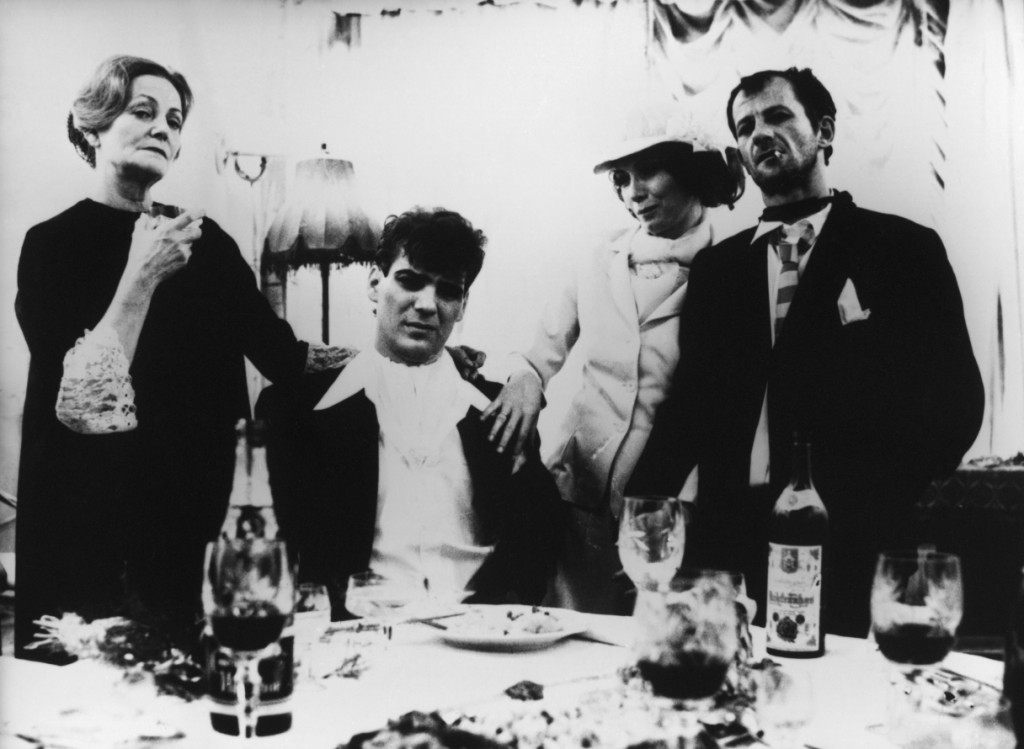March
On the first day of lockdown, I play a movie for the kids so I can move bedroom furniture: eight-drawer dresser, queen bed, desk, file cabinet, nightstand, lamps. My husband works upstairs, in the apartment of neighbors who have fled upstate.
I rearrange our room so my desk looks out a window. It’s raining. I hang a planter, line the windowsill with talismans of a writing life. I’ve always preferred to work on beds and couches; I’m never quite comfortable in a chair. But the symbolism feels important, the claiming and carving of space: This is mine; do you see me, marking it, guarding it?
The previous week, when schools were open, I’d received notes on the novel I’m trying to send into the world. This will take about two weeks, I’d thought then, knowing two maybe meant four, realistically. While I’d waited for notes, an editor had reached out after reading a short piece and asked to see the book; a dream agent I’d written off as a non-response requested a full.
It’s spring break, so I have a week’s respite from course prep. I switch on my brass desk lamp, open my laptop, and re-write the backstory for the novel, then outline a revised Chapter One. A map. I congratulate myself for determination through hardship.
This was when we thought it would be six, eight weeks. Maybe till the end of the school year, if things got really bad.
April
Through the spring I teach a graduate seminar on polyphonic novels. We read and discuss a novel per week, on average—a reading load I’ve cursed us all with. It’s my first time teaching this course, these books, and I’m a slow reader. From waking through the afternoon, I solo-parent both children and supervise their remote learning. My eight-year-old son, who has always loved school, is miserable. He grows increasingly anxious, unable to complete basic assignments without tears. My three-year-old daughter tunes into her Zoom preschool, then wanders away, frustrated and bored. I try to keep her occupied without screens. I try to make sure she uses the bathroom frequently enough so she doesn’t wet herself. I try to make sure that every day, we move our bodies, get outside, make art. Some days, I am successful, and we draw chalk murals on our building’s walkway. Other days I hand my daughter an iPad and clean up pee. My husband works upstairs from 7 or 8 a.m. to 3:30, and I work from the time he gets home till dinner. We eat, put the kids to bed, then go back to work. From 8:30 till midnight or one, I read, respond to student writing, and lesson plan.
One day in class, in late April, I give my students a 10-minute writing exercise. While they write, I write, and once I begin, I cannot stop. I outline my next novel, the idea of which has been floating in my head for over a year. I’m sad when my timer goes off. “That’s the most writing I’ve gotten done in six weeks,” I say aloud to the class, then wonder if I shouldn’t have.
May
My course ends. Instead of the teaching reappointment letter I’ve always received, I get an email from HR saying no such notices are forthcoming at this time; I’ll be told by August 1st if my course is canceled. My summer educational consultant work is indefinitely postponed due to COVID.
Three years ago, we’d made the decision that I’d leave my full-time writing program administration job to teach and write—the things I love most. If we belt-tightened, we could make it on the money from my teaching plus my husband’s job—mechanical engineering towards clean building energy, saving the world. I have never felt so loved as the night when I outlined my dreams for the future, and my husband said, Why don’t we try it now?
But now, there’s no teaching, and there’s no writing—my work hours shifted back to my husband in an attempt to get us both some sleep; my thoughts a pulsing buzz. There is instead stay-at-home mom, housewife.
We quarantine for 14 days, then head to my mother’s in Vermont. A chance to be outdoors. Another adult. We pack for a two-week visit.
June
We extend our stay. In Vermont, my son struggles through the last month of remote school, exhausted and overwhelmed, and I coach him through the end of second grade with the care of a hostage negotiator. My body is flooded with stress much of the time. I am a person who craves hours a day of solo quiet, and I have none. My children, it seems, do not ever stop talking, banging, thudding as they walk across the flimsily framed floor of my mother’s house, a former camp cabin. There are many times a day where I raise my voice. There are many times I must drop my hands and remind myself I do not wish to hurt my children. I realize: it’s not that I used to be a good parent; it’s that my life was incredibly easy.
My husband works all day from the guest bedroom where we sleep. When I can, I steal into my mom’s bedroom for an hour or two before dinner. Slowly, I cut 15,000 words from my novel. I am relieved to see them go, to feel what the book can be without them—but now nothing fits together.
I’ve taught an independent course called Writing Through Motherhood in the past, and now seems a good time to conjure a community of mother-writers, to create an accountability structure, to teach, to earn money. I delete web copy on the course site which refers to the challenges of early motherhood as “temporary.” I announce a new class half-heartedly on social media. Two sections fill and overflow within days, one cohort of returning students, one of new writers.
I read at night, for hours and hours, almost all of them books by women, by mothers.
July
School ends, and my son is, immediately, himself again—sunny, sweet, creative and easy-going. I understand, in a way I hadn’t before, how miserable the specific pressure of remote schooling had made him, and feel guilty for not protecting him, for not pulling the plug on this whole thing in April and just letting him read for hours, his natural state.
Usually, the arc of Writing Through Motherhood is a scatterplot bending unmistakably toward a regular writing practice for all participants, but for my new cohort, it feels like there’s little arc. It’s okay, it’s okay, I say, when another woman confesses she didn’t write that week. I mean it; I know it’s true, and that it’s important to say. But I feel useless. I try to turn my assurances back on myself, but can’t quite believe them. My cohort of returning students, on the other hand, writes and shares all summer long, buoyed by community, a sacred flicker Tuesday nights.
I notice: when my husband needs extra time to work, my mother quickly volunteers to watch the kids. When I ask for time to write, there is often a sense that I’m imposing, shirking my responsibilities, even if the kids are just watching screens. But when I claim time to teach, no one begrudges me the time and space.
At some point in July, we come to understand: school will not be coming back this fall. September would have been the first time in eight years I would have had no-cost childcare. It dawns on me, this moment, this break from supervising homeschool? This is as good as it’s going to get, for a long time.
So I write on the porch of my mom’s house, while my kids play in the grass. I write at the kitchen table, while they play on the floor next to me. One day, I look up from Scrivener when my daughter brings me the iPad, which won’t show a video of an adult woman playing with Paw Patrol figurines. I fix a setting, and an ad begins: it’s Joyce Carol Oates, riding a wave of urgent arpeggios, peddling a MasterClass. “The great enemy of writing isn’t your own lack of talent,” she intones. “It’s being interrupted… by other people.” Behind my daughter’s head, I throw Joyce the finger.
I write on my laptop, I write on my phone, I write in my notebook, on notepads on my mother’s desk. I write in my mother’s bedroom, in her guest bedroom, my kids’ bedroom. I write at night on the porch, or in bed while my husband sleeps next to me. I write in the morning, before anyone knows I’m awake. I write in the middle nine minutes of the ten-minute stretches I give my students. I dictate writing into my phone as I walk through the woods. I write from the driver’s seat of my mother’s car, in the parking lot of a McDonald’s, facing the train tracks, while she undergoes a routine inpatient procedure. For three glorious sessions, I write in the sunroom of my mom’s neighbor’s cabin, free for a few days between summer rentals. It is the happiest I have been in a long time.
And yet, I feel like I’m getting nowhere. I shuffle and reshuffle sections, write new scenes, new ligatures. Nothing feels like it makes sense. Nothing feels like it matters.
August
We return to New York, to our two-bedroom apartment in Brooklyn, and we feel the walls. We no longer have the upstairs apartment to use; the neighbors have moved and sublet their place. My husband sets up his dual-monitor system in our bedroom. He sits at my desk, and closes the door. What other choice do we have?
We have a choice for schools in September: a hybrid model, in which students attend in-person two days a week, or fully online. I ask my son what he wants, and am astonished when he asks for full-remote. “I just want to help the coronavirus go away as soon as possible,” he says. I read an open letter from district principals detailing the dangers in their schools, begging the DOE to delay opening. I fill out the form requesting fully-remote learning. It feels like consenting to my own imprisonment.
My fall course is confirmed, and I prep and write when I can. I write at 5:45, when my husband’s alarm wakes me and I can’t go back to sleep. I write while half-supervising a park playdate, trusting I’d notice if a child was up to something actually dangerous. I write during screen time, the bounds of which creep earlier and earlier. But I don’t know how to structurally revise a 77,000 word novel in 20-minute increments.
In tears on our anniversary, I tell my husband, I feel like I’m failing at everything. He tells me the things you hope your husband will say to you on your 11th anniversary. We make a new plan for September: an adjusted schedule with shared school supervision responsibilities, an afternoon babysitter.
I have hope for the fall for the first time, yet wonder why we didn’t make this plan before. What beliefs about myself and motherhood, about writing, about work and money, kept me from asking for what I needed?
September
My class begins. It’s a class I love to teach, helping prepare writers to become teachers of writing. It’s all online, and I’m grateful from a health standpoint, but surprised how many additional hours it takes to teach a class online that I’ve taught in-person three times already. I hope that at some point, the balance will turn, that this class prep time will turn into writing time.
We book a babysitter for two-and-a-half hours on weekday afternoons, a little shared pod with neighbors upstairs. On the first day, I sit at my desk and write. Out the window, I see my son pull my daughter in a wagon around the building, then my daughter fall out of the wagon onto concrete. She cries, but it takes a few minutes for the babysitter to come to her. At 5, when they come back inside, my daughter announces, I hit my head three times! On the second day, she falls off her scooter, and the babysitter mentions a scraped knee, but I notice there’s something off about the way my daughter holds her wrist. The next day brings us to the pediatrician, then to the pediatric urgent care for X-rays, then to the regular urgent care when the pediatric X-ray technician isn’t there. It’s a fracture. We part ways with the babysitter, and I sink into despair for a few days.
October
It takes two weeks to find a new babysitter, but the new one sings, and teaches new games, and brings popsicle sticks for crafts. My son is happy and largely independent in remote-schooling—one day, I hear him sigh I love you to his teacher over Zoom. My daughter, now four, is reading, and building elaborate Duplo structures. My fall class is well underway, the students thoughtful and earnest, The Most Sincere Pumpkin Patch. I’m told I have a spring class.
So I write from a new island of stable-as-it-gets. I know it’s temporary; I know better than to waste it. I sit at my desk by the window. I open the novel file, and get to work. Chapter Two.
Photo credit: Gerd Altman via Pixabay




